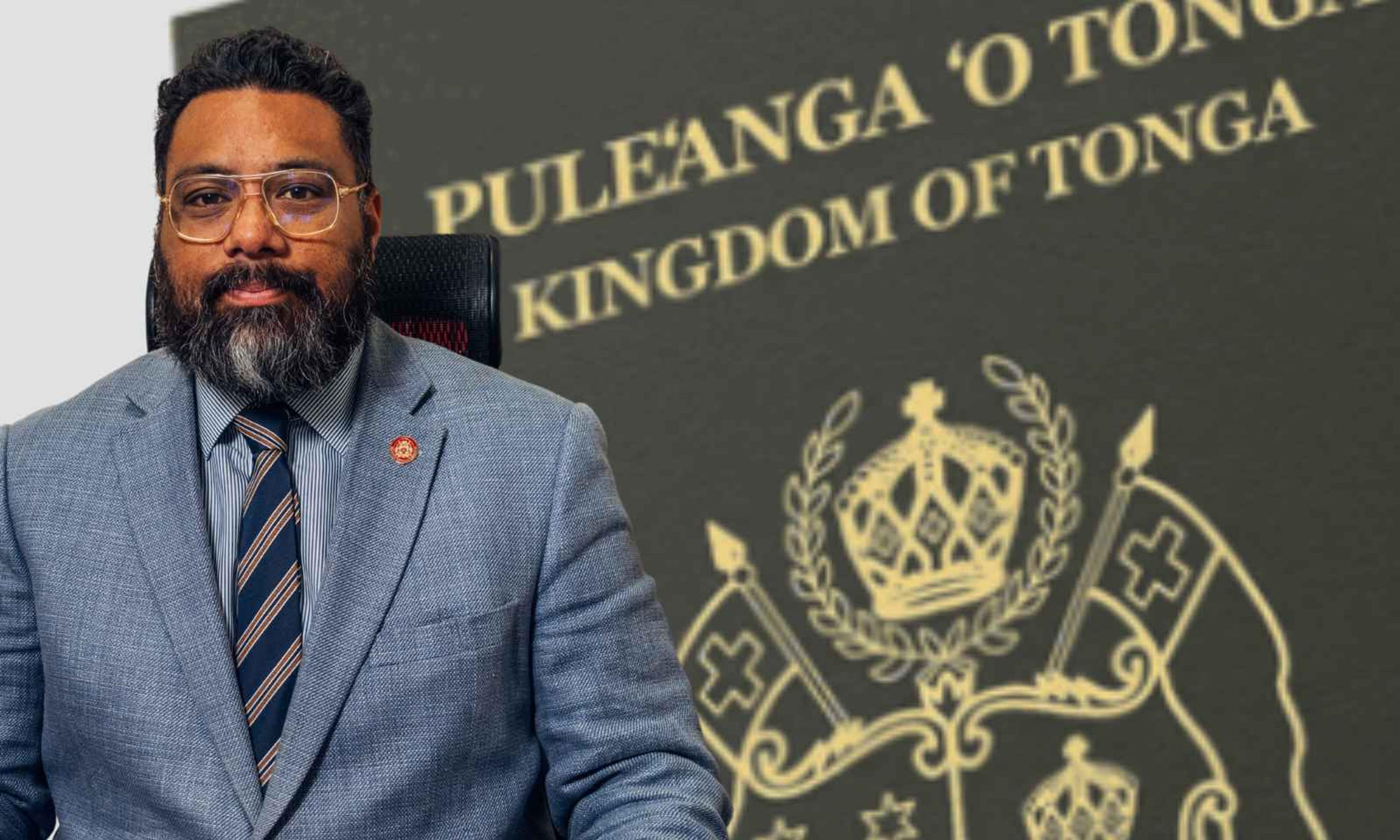

Madleen, 11, picks vegetables from a community nursery on an island in Shefa Province, Vanuatu.
Photo/Save The Children/Conor Ashleigh
Empowering families: Climate-smart farming revitalises cyclone recovery and nutrition
Polly Banks, of Save the Children Vanuatu, says the initiative helps communities rebuild and equips them to withstand future climate challenges.


Pacific sports wrap: 2025’s massive highs, lows and historic firsts


Fresh warning as Tonga PM defends citizenship investment scheme


Pacific sports wrap: 2025’s massive highs, lows and historic firsts


Fresh warning as Tonga PM defends citizenship investment scheme
Climate-smart agriculture is helping hundreds of households in Vanuatu recover from the devastation caused by Cyclone Lola over a year ago.
The Category 4 storm hit Vanuatu with winds of up to 215km/h, resulting in at least four fatalities and affecting around 91,000 residents. Food crops, homes, and schools were flattened, leaving children vulnerable to hunger and diseases such as diarrhoea.
In 2024, a 7.3-magnitude earthquake further compounded the disaster, claiming 14 lives and causing critical infrastructure damage.
Madleen, 11, says the cyclone destroyed her family’s crops, leaving them struggling for food.
"The banana tree was just bearing fruit and it was destroyed. And we didn’t have enough food. We were eating rice, but we were almost running short. We were not eating well, we ate just enough. I felt bad,” Madleen says.
Save the Children’s (STC) Cyclone Lola Recovery Programme, guided by Vanuatu’s Ministry of Agriculture, is helping over 1100 Vanuatu households replenish their gardens with collapsible nurseries and resilient seeds.

Madleen, 11, in her bedroom on an island in Shefa Province, Vanuatu. Photo/Save The Children/Conor Ashleigh
Polly Banks, STC Vanuatu Country Director, says the programme shifts from providing emergency food, water, and shelter to implementing long-term food security projects.
Each household receives open-pollinated seed packs for fast-growing, flood- and drought-resistant crops such as tomatoes, eggplants, and manioc. The programme also offers lessons on grafting techniques that help keep fruit trees low and resilient against strong winds.
Banks says communities now have access to 11 new fruits and vegetables, diversifying diets that were previously limited to island cabbage. She adds that this approach is designed to be culturally relevant and was developed with input from the local staff, provincial, and national government representatives.
“There’s now manioc, eggplant, tomatoes, capsicum, haricot beans, cucumber, corn, and also a wide range of fruits and citrus trees. This has huge nutritional outcomes as well as climate resilient outcomes in a country with alarming rates of stunting and malnourishment among children,” she says.
“In Vanuatu, more than 40 per cent of children are either experiencing moderate or severe stunting, which has lifelong impacts on their brain development and body development. So getting a variety of nutritious foods into the diet is just critical.”
Teams are also training villagers to use collapsible nurseries to protect crops during cyclones, allowing them to quickly bring out the plants as cuttings for replanting for replanting once the storm passes. Seedlings can be securely stored in a church or other strong buildings to ensure their safety.
“They also have this entire seed bank that they can rely on and replant the moment that the next cyclone passes that they can also sell to other community members and communities further afield that don't have as much climate resilient training yet.”
Banks says open-pollinated seeds were not part of the original programme design, but Vanuatu’s Department of Agriculture identified them as a “clear need”.
“They produce plants that can reproduce true to type, [meaning] that farmers can save seeds from their harvest and plant them again next season with similar results. And the varieties of open pollinated seeds recommended by the Department of Agriculture [are] locally adapted,” Banks says.
“So they've got the genetic diversity to allow the plants that grow from these seeds to adapt to changing weather patterns. They've got a much higher tolerance to high rainfall, droughts, pests, and diseases.”

Siblings Madleen, 11, and Agnes, seven, with their mother, Nelly. Photo/Save The Children/Conor Ashleigh
Banks urges collective action to protect Pacific children from increasingly severe storms, saying that the climate crisis constitutes “a child rights crisis”.
“So it's really vital that we see it as a rights-based issue that's affecting the ability for children to access education, good nutrition, and to have their rights met. It’s really vital that we take collective action.”
Banks says Save the Children has been active in Vanuatu for more than 40 years and has made climate-smart agriculture a central component of its disaster-response strategy throughout the Pacific.